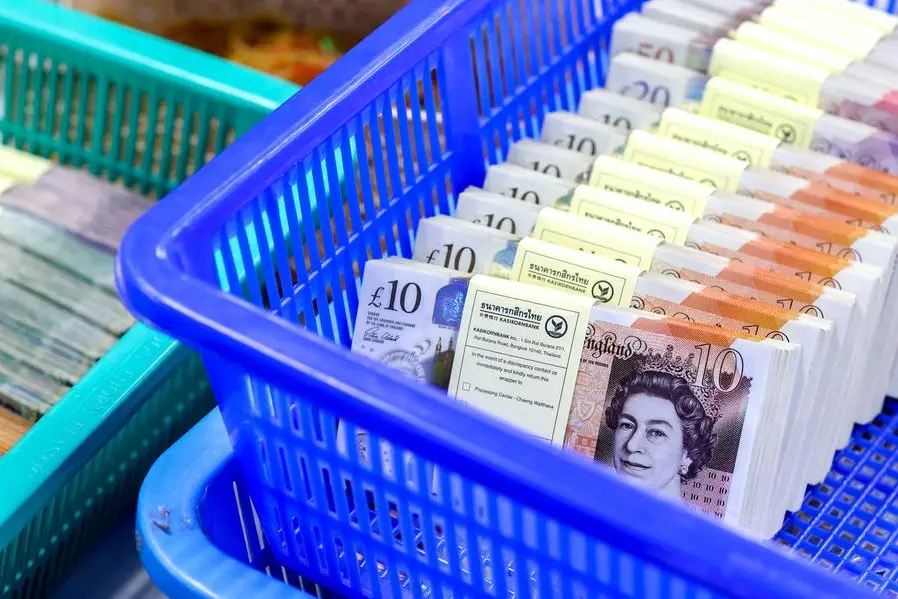PHOTO
Sterling rose slightly as investors awaited further clues about the Bank of England's monetary path from the S&P Global Composite Purchasing Managers' Index, which is due on Wednesday.
Long positions have increased for the third consecutive week to an all time high of $10.769 billion.
British inflation defied forecasts last week, leading investors to reduce their bets that the BoE will start cutting rates next month for the first time since 2020.
Sterling was up 0.05% at $1.2935 after hitting $1.3044 last week, its highest level since July 2023.
The euro was flat at 84.22 euros per pound, after reaching a 1-1/2-week high at 84.32 on Friday.
Analysts flagged that sterling is more attractive than other "risky" currencies. It is less dependent on the Chinese economy than the Australian dollar, and Britain has a less uncertain political outlook than the euro area, with less concerns about fiscal discipline.
New finance minister Rachel Reeves is likely to announce her first budget after parliament's summer recess.
She and Prime Minister Keir Starmer have ruled out increases in the rates of income tax, corporation tax and value-added tax, leaving her little room for manoeuvre to improve public services and boost investment.
"The Bank of England's broad trade-weighted sterling index is now barely 3% away from the levels traded in June 2016, before the Brexit vote," flagged Chris Turner, head of forex strategy at ING.
"Some are no doubt making the case that this is a removal of the Brexit risk premium in sterling, aided by new Prime Minister Keir Starmer's desire to engage more closely with Europe."
The BoE cutting rates in August should not change the British currency outlook if the Federal Reserve makes the same move in September as markets are currently pricing in.
Investors priced a 40% chance of a BoE move in August and more than an 80% chance in September.
Market participants remained concerned about the economic outlook after recent data.
"If the economic recovery can be blown off course by a light breeze, maybe it was not especially strong," said Benjamin Nabarro, chief UK economist at Citi, recalling the weakness of retail sales figures on Friday, which "should cast doubt on underlying momentum."
British retail sales volumes fell more than expected in June after unseasonably cooler weather put off shoppers.
(Reporting by Stefano Rebaudo, additional reporting by Samuel Indyk; editing by Angus MacSwan)





















